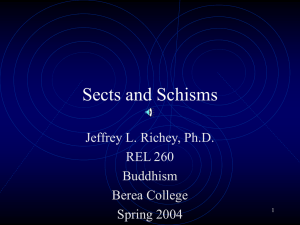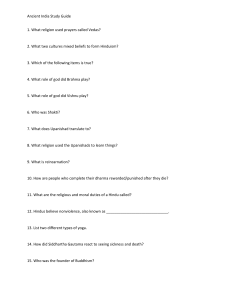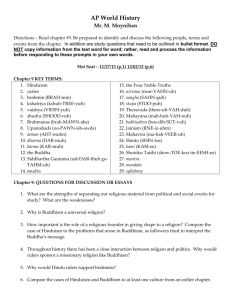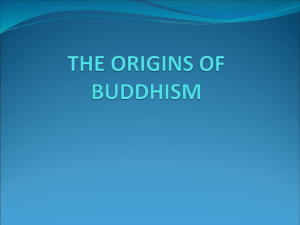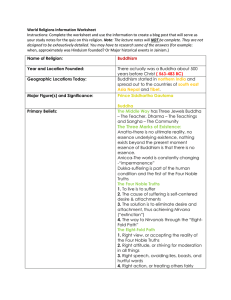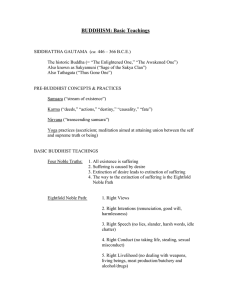Lect 10 Early Buddhism
advertisement
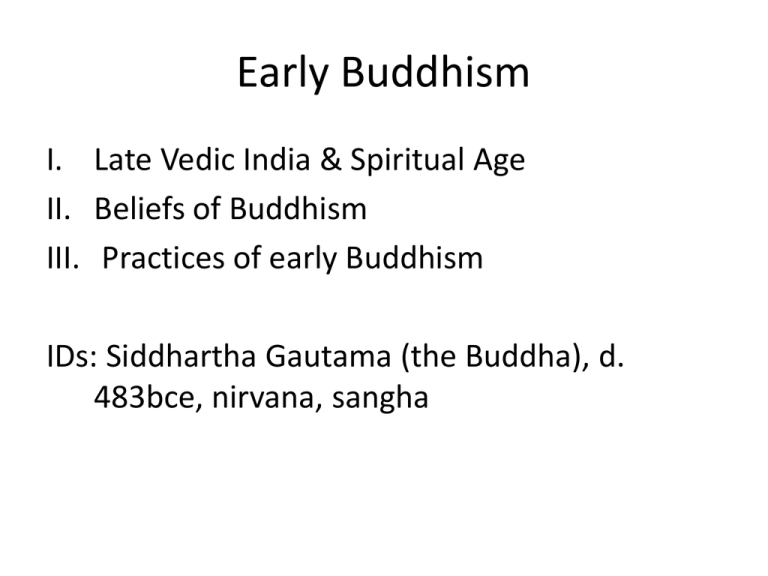
Early Buddhism I. Late Vedic India & Spiritual Age II. Beliefs of Buddhism III. Practices of early Buddhism IDs: Siddhartha Gautama (the Buddha), d. 483bce, nirvana, sangha Argument With no gods, no supernatural features, and no afterlife, early Buddhism was a response to the historical context of Late Vedic India. I. Historical Context A. Late Vedic Age (1000-500 BCE) Changes around 500 BCE Many small states Rajas (from kshatriya caste) Growth of towns Transition to Hinduism • More elaborate caste system • Karma & transmigration of souls • Dissatisfaction with Brahman leadership • Bhagavad Gita • Krishna • Arjuna B. Axial (Spiritual Age) 6th-4th century BCE Influential Thinkers • Buddha • Mahavira • Confucius • Laozi ? • Socrates • Aristotle • Plato & other Greeks New Religions/ Philosophical Systems • • • • Buddhism Confucianism Daoism Greek Philosophy Hinduism in the “Spiritual Age”: 6th c. BCE 1. Mahavira Jainism Asceticism Non-violence gurus II. Beliefs of Early Buddhism Siddhartha Gautama (c. 563 – 483 BCE) the Buddha (the Enlightened One) Ganges Bodhi tree (bo) Four Truths 1.Life is full of suffering. 2.Suffering is caused by desires. 3.The only way to rise above suffering is to renounce desire. 4.One can only do this by following Noble Eightfold Path. Goals rid self of desire & the illusion of separate identity reach nirvana (contentment and extinction) By following Noble Eightfold Path III. Practices of Early Buddhims The Buddha’s Footprints Limestone carving on stupa, India 1st c. BCE Sangha (Order) • monks • nuns The Three Jewels “I go for refuge to the Buddha. I go for refuge to the Doctrine (dharma). I go for refuge to the Order (sangha).” Argument With no gods, no supernatural features, and no afterlife, early Buddhism was a response to the historical context of Late Vedic India.


